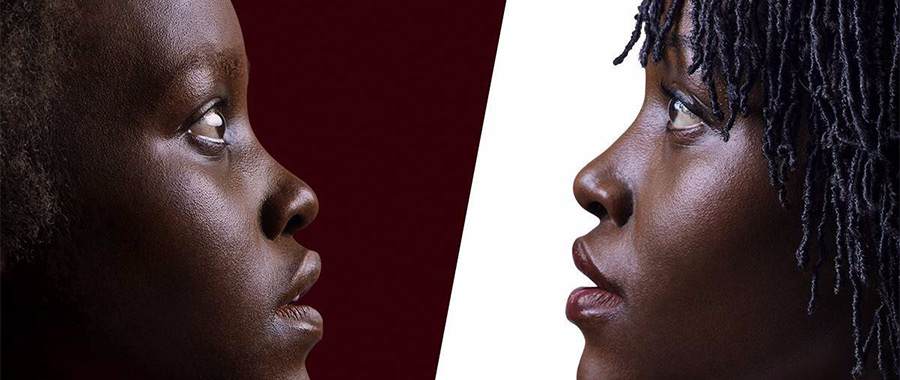In the contemporary dialogue surrounding social justice, the Baha’i teachings present a profound and holistic perspective on interconnectedness and oppression. These principles invite a deeper examination of the relationships that bind humanity, emphasizing that individual well-being is inextricably linked to the wellbeing of society as a whole.
The foundational tenet of Baha’i philosophy posits that all humans are part of a singular, global family. This perspective fosters a sense of unity, suggesting that the flourishing of one person invariably contributes to the upliftment of all. In this lens, oppression is not merely an aberration; rather, it reflects a disconnection from this intrinsic interconnectedness. This disconnection manifests in various societal forms—including systemic inequality, prejudice, and discrimination—which collectively undermine human dignity.
Understanding interconnectedness is paramount to grasping the depth of this philosophy. It challenges the prevailing paradigms in which individuals often perceive themselves as isolated entities within a competitive landscape. Instead, Baha’i teachings encourage an understanding of oneself as part of a broader tapestry of existence, where actions reverberate throughout the lives of others. As such, oppression emerges as a multifaceted phenomenon, characterized by both visible and invisible threads of injustice that bind the individual to the collective.
In addressing the implications of interconnectedness, Baha’i teachings advocate for profound social transformation built upon moral and ethical foundations. The inherent dignity of each person is a cornerstone of this worldview. Oppression, therefore, becomes not just a political or economic issue but a moral imperative requiring urgent redress. Here, the Baha’i concept of human rights evolves into a universal framework aimed at eliminating oppression in all its forms, emphasizing the importance of rights as an integrated whole rather than fragmented or individualistic notions.
It is through this lens of interconnectedness that we can begin to understand the systemic nature of oppression. The societal structures that perpetuate inequality—be they legal, educational, or economic—are not isolated phenomena; they are woven intricately with cultural norms and values. Engaging with these structures requires a paradigm shift: from a focus on individual prowess to an understanding of communal responsibility. This shift aligns seamlessly with the Baha’i view that social change must stem from the hearts and minds of individuals committed to collective progress.
Furthermore, Baha’i philosophy emphasizes the transformative power of education in combating oppression. Education is seen not merely as a tool for personal advancement but as a vital mechanism for fostering social cohesion and collective empowerment. The teachings advocate for universal education that transcends gender, race, and socioeconomic status, thereby promoting equitable access to knowledge as a means of dismantling oppressive structures. By equipping individuals with the tools to critically engage with their society, education becomes an act of liberation.
The notion of race, too, occupies a pivotal place in the Baha’i discourse on interconnectedness. Historical and contemporary manifestations of racism exemplify the devastating consequences of societal disconnection. The Baha’i teachings reject all forms of racial prejudice, asserting that the diversity of humanity enriches the collective experience of life. The struggle against racial oppression is inherently linked to the quest for global harmony and peace, illustrating that any attempt to diminish the rights of one group ultimately jeopardizes the rights of all. Through a commitment to unity in diversity, Baha’i principles encourage a reimagining of social structures to reflect a society that honors every facet of human identity.
Moreover, the role of activism is crucial in the Baha’i view of confronting oppression. Engaging with communities to foster dialogue and understanding can catalyze change at both personal and societal levels. Activism within Baha’i teachings emphasizes the importance of constructive, spiritual, and moral means. This approach champions the idea that efforts to combat injustice should reflect the very values being promulgated—namely, love, compassion, and justice. As individuals engage in activism, they are encouraged to remain attuned to the principles of unity and fellowship, fostering a collaborative spirit that is essential for lasting change.
In addition to activism, the Baha’i concept of prayer and reflection plays an integral role in the pursuit of justice and understanding one’s interconnectedness. Prayer becomes a means of cultivating a deeper consciousness about the injustices faced by others, enabling individuals to transcend personal grievances and focus instead on collective healing. Through prayer, the Baha’i approach nurtures a spirit of humility and empathy, identifying the root causes of oppression and motivating actions that are constructive and unifying.
Finally, the promise of a shift in perspective through Baha’i teachings is unequivocal. As individuals begin to recognize their part within the web of human experience, they are invited to not only reassess their individual roles but to actively engage in the collective responsibility of social transformation. Through the embrace of interconnectedness, members of society can challenge the oppressive structures that inhibit progress, fostering an environment where peace, justice, and understanding reign. The exploration of these principles lays the groundwork for a future where unity and collaboration triumph over discord and division—thus promising a brighter horizon for all humanity.
In sum, the Baha’i view on interconnectedness and oppression challenges individuals to reconsider their worldview, encouraging a collective ethos that recognizes the implications of their actions on the broader tapestry of society. It is a clarion call for unity, compassion, and action—a guiding light in the ongoing quest for justice and equity in an often fragmented world.
